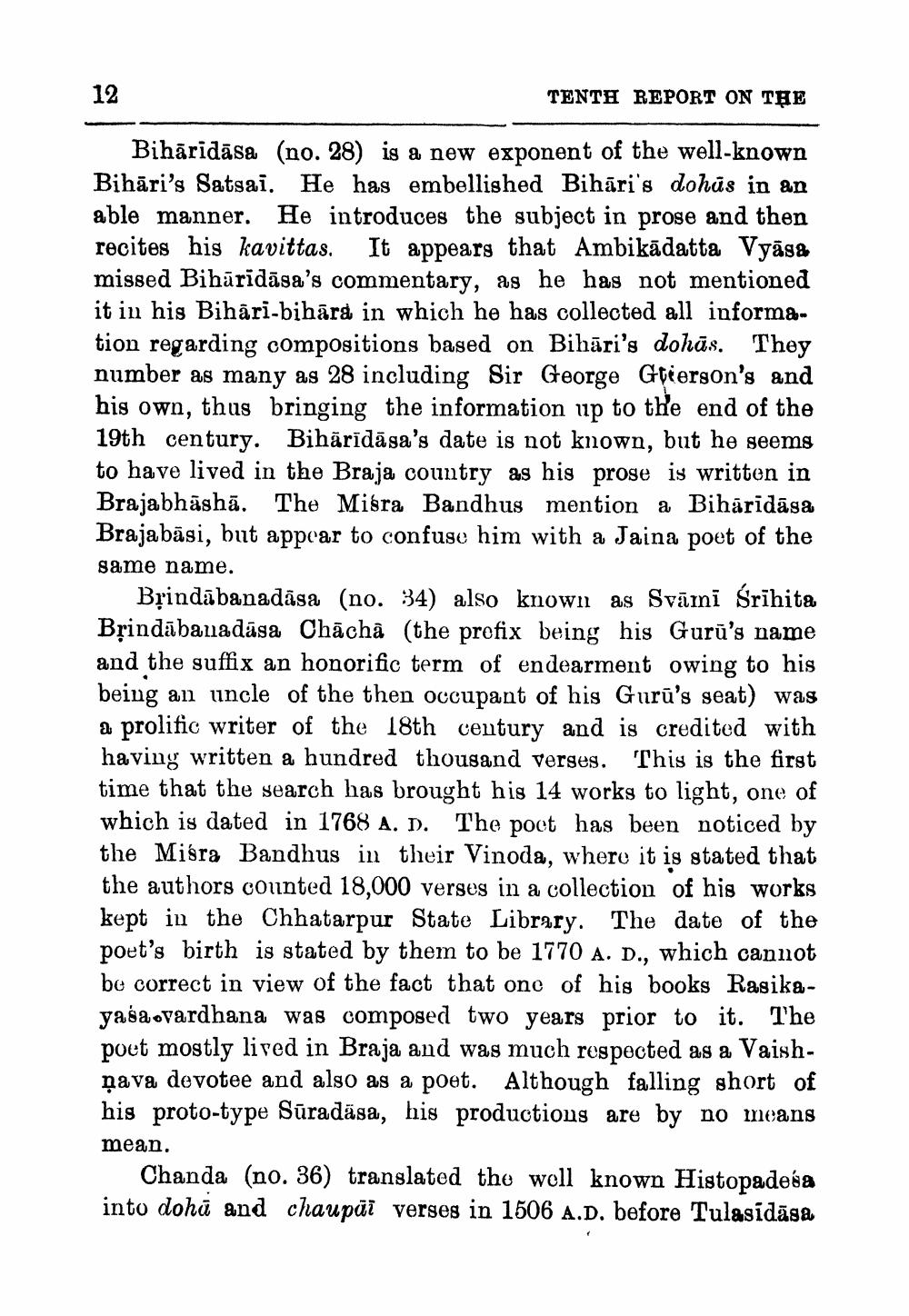________________
12
TENTH REPORT ON TE
Bihāridāsa (no. 28) is a new exponent of the well-known Bihāri's Satsai. He has embellished Bihāri's dohūs in an able manner. He introduces the subject in prose and then recites his kavittas. It appears that Ambikādatta Vyās& missed Bihārīdāsa's commentary, as he has not mentioned it in his Bihāri-bihārs in which he has collected all information regarding compositions based on Bihāri's donās. They number as many as 28 including Sir George Gợierson's and his own, thus bringing the information up to the end of the 19th century. Bihārīdāsa's date is not known, but he seems to have lived in the Braja country as his prose is written in Brajabhāshā. The Misra Bandhus mention a Biharidāsa Brajabāsi, but appear to confuse him with a Jaina poet of the same name.
Brindābanadāsa (no. 34) also known as Svāmī Śrīhita Brindābanadāsa Chāchà (the profix being his Gurū's name and the suffix an honorific term of endearment owing to his being an uncle of the then occupant of his Gurū's seat) was a prolific writer of the 18th century and is credited with having written a hundred thousand verses. This is the first time that the search has brought his 14 works to light, one of which is dated in 1768 A. 1). The poet has been noticed by the Misra Bandhus in their Vinoda, where it is stated that the authors counted 18,000 verses in a collection of his works kept in the Chhatarpur State Library. The date of the poet's birth is stated by them to be 1770 A. D.. which cannot be correct in view of the fact that one of his books Rasikayasa.vardhana was composed two years prior to it. The poet mostly lived in Braja and was much respected as a Vaishnava devotee and also as a poet. Although falling short of his proto-type Sūradāsa, his productions are by no means mean.
Chanda (no. 36) translated the well known Histopadesa into dohū and chaupūi verses in 1506 A.D. before Tulasidāsa




